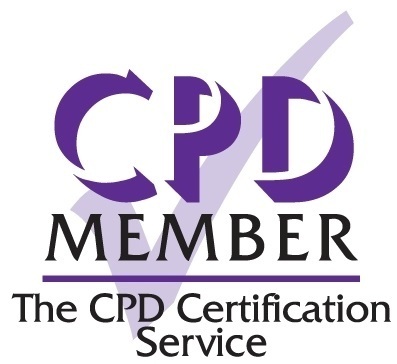
Digital health change & training – the 5 levels of good learning and adoption
These days most digital health programmes, large or small, allow time and resources for training. […]

The Government’s recent white paper sets the expectation that Integrated Care Systems (ICSs), originally defined in the NHS Long Term Plan, will become statutory bodies by April 2022. This is another big change for the NHS. But with large-scale change comes opportunity to do things better.
ICSs have the opportunity to drive transformation at system level, creating and embedding long-lasting skills and processes that will sustain change, benefit the system and the organisations within it, and achieve the highest level of change maturity: Organisational Competency. This means embedding change management at every level of an organisation to ensure responsiveness to change and faster, more effective strategy implementation.

ICSs should take responsibility for not just the “what”, but also the “how” and “why” of transforming the way they deliver health and care. This fundamental shift should act as a driving force for institutionalised change maturity for the NHS – here are 4 reasons why ICSs can and should lead the way:
1. Creating a common localised vision
One of the pillars of mature change organisations is the existence of a shared common vision. As the NHS looks to shift from commissioning episodic acute treatment to focusing on population health and effectively caring for the elderly and chronically ill in the community, this will require each ICS to translate this “national vision” into their own “localised vision” reflecting their own challenges.
To be truly localised, this vision must be co-designed with all of those services that will be expected to partake in delivering it and in doing so the creation of the vision itself becomes a catalyst for change. It requires collaboration, leadership and the need for organisations, who may not normally work together, to understand each other’s individual perspectives on the issues they face as a collective.
2. Collaborating as a system
The concept of an ICS if managed well, provides a real opportunity for structured innovative collaboration. The King’s Fund [i] states that their “[Our] own work has found that progress is more rapid where effort has been invested in building trust and collaborative relationships. This must be done at a local level, and it takes time and requires sustained commitment.”
Collaboration has always been at the heart of great care, however from a holistic perspective collaboration is not easy when competition is still encouraged.
Small progressive steps is key here – picking one or two projects to foster and promote collaboration and building on these to gain momentum on others and discovering new ways benefits can be delivered. Once institutionalised collaboration becomes the foundation for a change mature organisation – one that thinks in a systemic way while balancing organisational demands, that is flexible, has the ability to compromise and be self-reflective and supportive.
3. Transforming leadership and culture
Another pillar of successful change is leadership or to be clear committed transformational leadership – the kind that lives and breathes the vision and is prepared to stick it out to make it happen. This kind of leadership if sustained eventually changes the way organisations do things, or the very culture of the organisation and goes on to embed a culture of change.
It takes persistent leadership but also the type that is capable of working across a large system of organisations, stakeholders and priorities. The excellent King’s Fund paper titled “Leading across the health and care system: lessons from experience,” [ii] lists 5 factors that facilitate system leadership:

In its conclusion it states, “In the NHS this requires a fundamental shift from pace-setting leadership styles to participative and facilitative ways of working. It means being open to hearing and acting on different points of view. This in turn depends on creating time and space for stakeholders to come together to have the creative conversations on which understanding and change rest.”
This type of systemic transformational leadership will require time, commitment, training (see Footnote below), coaching (the greatest leaders have them) and good old fashioned elbow grease.
4. To be a force for change capacity and capability
In each ICS will live a number of resources or teams who have responsibility for change in some capacity – change maturity will come from identifying those resources, fostering and developing them and allowing them the remit to work across the ICS to embed a culture of change and relevant methodology.
Going beyond the change resources themselves, change is best seen as being “everyone’s problem”. Considering the skills and resources required to support effective ICS collaboration and shift towards a different way of working, we must look at how staff skills can be further developed to make everyone capable and aware of change. In today’s world where wellbeing and resilience ride high on the agenda, perhaps change capability is as important as change itself.
A change resilient culture is an agile culture – the change mature organisation makes change management everyone’s business and gives them the skills to do so.
NHS staff face change on a daily basis and are more agile than people sometimes give credit – an ICS calls for agility on a systemic scale. As the ICS moves forward towards its strategic objectives, each organisation within the system stands to benefit. However, this can and should be supported by emphasising the “how” and the “why” of the change, as much as the “what”, and pushing for skills and process development with a view to lifting change maturity as a system.
Footnote: The UK Leadership Centre has spent the last 10 years seeking to further our knowledge of what really works in response to the challenges of social issues in places around England. Through working with political, community and organisational leaders, the focus has evolved from local leadership projects through ‘Total Place’ to today’s ‘system leadership’ and ‘local vision’ work. It is now working with partners from across the health and social care systems, supported by the ‘Systems Leadership Steering Group’; local vision projects are underway or delivered in over fifty locations, in counties and cities, towns and boroughs. In so doing, they have been able to determine how different forms of leadership can influence these issues for the longer term. By experiencing successful approaches in one setting, people have been able to develop their capacity for leadership across a much wider system. UKLC have pulled together a truly comprehensive guide called The Art of Change Making which acts as a handbook of pragmatic change leadership techniques based in real experience, sometimes honed over decades. It makes no pretence of being exhaustive or academically rigorous, instead it shows how this work has been approached and offers a fresh perspective into working with novel and intransigent social issues, whilst drawing on an extensive body of knowledge and wisdom.
[i] The Kings Fund
[ii] “Leading across the health and care system: lessons from experience”

These days most digital health programmes, large or small, allow time and resources for training. […]

There are 5 critical paths required for a successful EPR implementation and many potential blockers […]

There are many challenges in data validation in the mental health space, with the need […]
“We recognised the enormous impact a good floorwalking team has on the success of project implementation. With Ideal Training’s previous track record and experience in Cerner implementations, we felt confident in the service offered and would certainly consider working with them in the future”
“The trainers Ideal provided have been brilliant. They not only provided the highest quality training and feedback, but were always prepared to go the extra mile when needed. Thanks for helping develop a relationship that we can rely on and when we’re looking for capacity to roll out the rest of eRecord we’ll be on the phone. Look after the trainers we’ve had – they’re a great bunch”
"Ideal Health contributed towards the success of our Apollo Programme. They provided a team of 100 trainers who collaborated with our programme leaders and trainers to develop training materials aligned to our training strategy. Together, they created 800 engaging e-learning modules and delivered face-to-face training to over 30,000 staff across multiple locations. This comprehensive approach ensured that our workforce was well-prepared for the Epic programme's go live."
“Ideal were a valuable partner as we engaged operational teams to translate our high-level ambitions into a meaningful vision and digital objectives. Their impartiality and customer focus meant they were able to communicate clearly with colleagues, identify common problems, and sensitively move past stress and ‘pet peeves’ to get to the heart of the difficulties our teams were experiencing in accessing the right information day to day”
“Ideal made a big difference. By using Ideal as the foundation of our floorwalking support, and augmenting this with Trust staff, we were able to ensure a constant, capable presence with our end-users 24/7. This would not have been possible without Ideal and reduced the impact on the wider Trust saving us from having to pause additional activity.”
“Ideal's Digital Maturity review has enabled us to refocus our Digital and Data Strategies post-Covid, appreciating which shared and individual activities could support our ambitions for digital healthcare in our area. We are now taking the recommendations forward via a series of workshops across ICS partners to reprioritise and plan our next phase of activities”
"A big shout out to the Ideal Health team for being super friendly, flexible, and approachable. The more we work together, the better it gets. Familiar faces become part of the Go-Live team, learning the geography and culture of the organisation. Including the Ideal Health management team behind the scenes, we always feel fully supported with a "can-do" attitude that helps us make improvements every Go-Live. For those returning for the March Go-Lives, I look forward to working with you again!"
“The trainers supplied by Ideal did a very thorough job in preparing staff at the Royal Free, including adapting the programme to meet the needs and availability of the consultants. The trainers further enhanced the service by gathering information from the shop floor and feeding back to the training team. We were delighted with the service we received from Ideal”
“Perot Systems has worked with Ideal on provision of floor walking services to support large scale Cerner implementations. The success of the implementations and the smooth execution of the go lives have rested significantly on the success of the services that Ideal Training provide. The staff themselves are extremely knowledgeable in both the product and the NHS operations they support with specialist SME’s provided as demanded”.
“The E-Learning Development Manager from Ideal worked closely with my Training team to develop e-learning content for Maternity. The modules delivered were concise, thorough, and easy to absorb. The structure was clear, logical and effective, and included elements of interactivity and video. There has been a lot of praise by the SMEs and staff regarding the high quality of the work produced on a very complex specialty. I found working with Ideal to be a very positive experience. I would highly recommend for any related work”
“Ideal has an excellent reputation as a top-class training provider working exclusively in the health sector. With their experience and demonstrable track record in delivering IT training solutions to NHS organisations, Ideal was the clear choice for BT and Connecting for Health”
“We were most impressed with the calibre of floor walking staff supplied by Ideal. They were highly professional in their approach and demonstrated a fully comprehensive understanding of the system”
“Ideal demonstrated great agility in supplying experienced support for the Trust’s EPR requirements and mapping exercises. They showed great flexibility in meeting the Trust’s needs, clearly articulating the approach and costs associated. This coupled with advice and experience enabled the ‘As Is’ and ‘To Be’ processes mapping to complete to time and quality”
“For the implementation of our EPR+ programme, the Trust needed a partner who we were confident could help us successfully deliver the system. Ideal demonstrated an approach which married up to our requirements”










